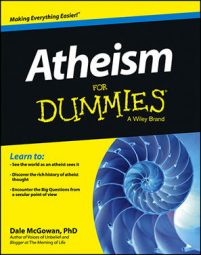Atheist philosophers didn’t really kill God, though Neitzche and Hardy have helped lay God to rest. And though philosophy has been pounding away at religious assumptions for centuries now, science ended up putting those assumptions on life support.
An atheist philosopher, Friedrich Nietzsche (1844–1900), finally took the pulse of God and declared an end to the whole idea. When he said God was dead, it wasn’t the jubilant whoop! most people think it was. On the contrary, he captured the despair many poets and writers expressed during this time of slipping religious faith.
Thomas Hardy finished what Nietzsche started by laying Jehovah to rest in a poem titled, appropriately enough, God’s Funeral. A traditional Anglican believer for most of his life, Hardy eventually lost his Christian belief, adopting instead a kind of pantheistic view of the universe rather than a stringently atheist view.
Like Nietzsche, Hardy didn’t express the feeling of freedom and elation that some others did, especially in later centuries. For Hardy, the loss was too fresh. It was a kind of bereavement.
The poem describes a solemn procession across a half-lit plain, carrying a dead figure. At first it “seemed manlike,” then changes form, becoming a cloud, then seeming to sprout enormous wings, capturing the changes in people’s concept of God as they struggle to make it work.
As the procession slowly passes, Hardy remembers the history of this “man-projected Figure” — first jealous and fierce (Old Testament), then just and blessed (New Testament). Needing solace, humanity deceived itself as long as it could, he says, until reality made it too hard to believe at all and thus is born his brand of atheism.
In the middle is a wonderful bit of empathy for those individuals who continue to believe. Incredulous believers are chasing after the funeral procession in angry denial, calling it a mockery and a lie, shouting, “Still he lives to us!” Hardy doesn’t call them fools and instead sympathizes with their loss.

